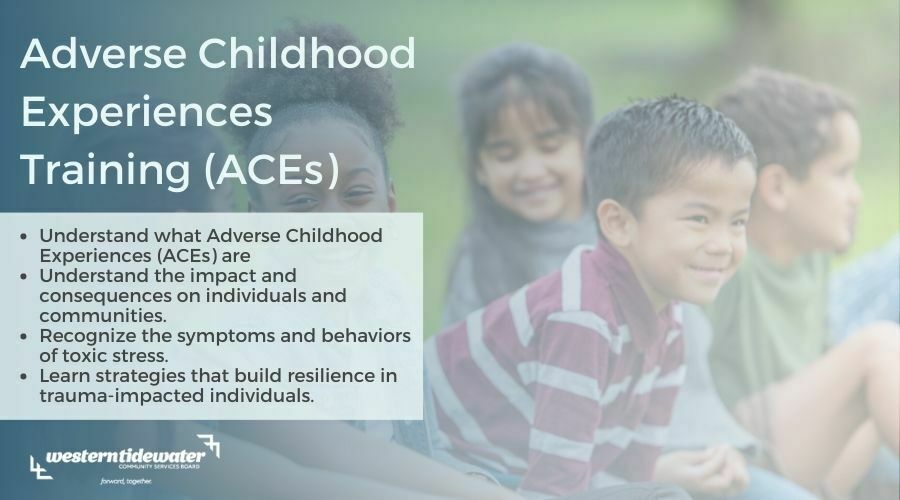
Adverse Childhood Experiences (ACEs) Interface Training with WTCSB
What are adverse childhood experiences?
Adverse childhood experiences, or ACEs, are potentially traumatic events that occur in childhood (0-17 years). For example: experiencing violence, abuse, or neglect, witnessing violence in the home or community, having a family member attempt or die by suicide.
Also included are aspects of the child’s environment that can undermine their sense of safety, stability, and bonding, such as growing up in a household with: substance use problems, mental health problems, instability due to parental separation or household members being in jail or prison.
Join us for an in-depth discussion as we talk about ways to combat Adverse Childhood Experiences.
Date: April 8th, 2025
Time: 9:00 AM – 1:00 PM (EST)
Location: Online via Zoom
Presented by: Angela Brown
This training will:
— Help you to understand what Adverse Childhood Experiences (ACEs) are; plus, the impact and consequences they have on individuals and communities.
— Recognize the symptoms and behaviors of toxic stress.
— Learn strategies that build resilience in trauma-impacted individuals.
— What are adverse childhood experiences?
How big is the problem?
ACEs are common. About 61% of adults surveyed across 25 states reported they had experienced at least one type of ACE before age 18, and nearly 1 in 6 reported they had experienced four or more types of ACEs.
Preventing ACEs could potentially reduce many health conditions. For example, by preventing ACEs, up to 1.9 million heart disease cases and 21 million depression cases could have been potentially avoided.
Some children are at greater risk than others. Women and several racial/ethnic minority groups were at greater risk for experiencing four or more types of ACEs.
ACEs are costly. The economic and social costs to families, communities, and society totals hundreds of billions of dollars each year. A 10% reduction in ACEs in North America could equate to an annual savings of $56 billion.
What are the consequences?
ACEs can have lasting, negative effects on health, well-being, as well as life opportunities such as education and job potential. These experiences can increase the risks of injury, sexually transmitted infections, maternal and child health problems (including teen pregnancy, pregnancy complications, and fetal death), involvement in sex trafficking, and a wide range of chronic diseases and leading causes of death such as cancer, diabetes, heart disease, and suicide.
ACEs and associated social determinants of health, such as living in under-resourced or racially segregated neighborhoods, frequently moving, and experiencing food insecurity, can cause toxic stress (extended or prolonged stress). Toxic stress from ACEs can negatively affect children’s brain development, immune systems, and stress-response systems. These changes can affect children’s attention, decision-making, and learning.
Children growing up with toxic stress may have difficulty forming healthy and stable relationships. They may also have unstable work histories as adults and struggle with finances, jobs, and depression throughout life. These effects can also be passed on to their own children. Some children may face further exposure to toxic stress from historical and ongoing traumas due to systemic racism or the impacts of poverty resulting from limited educational and economic opportunities.
